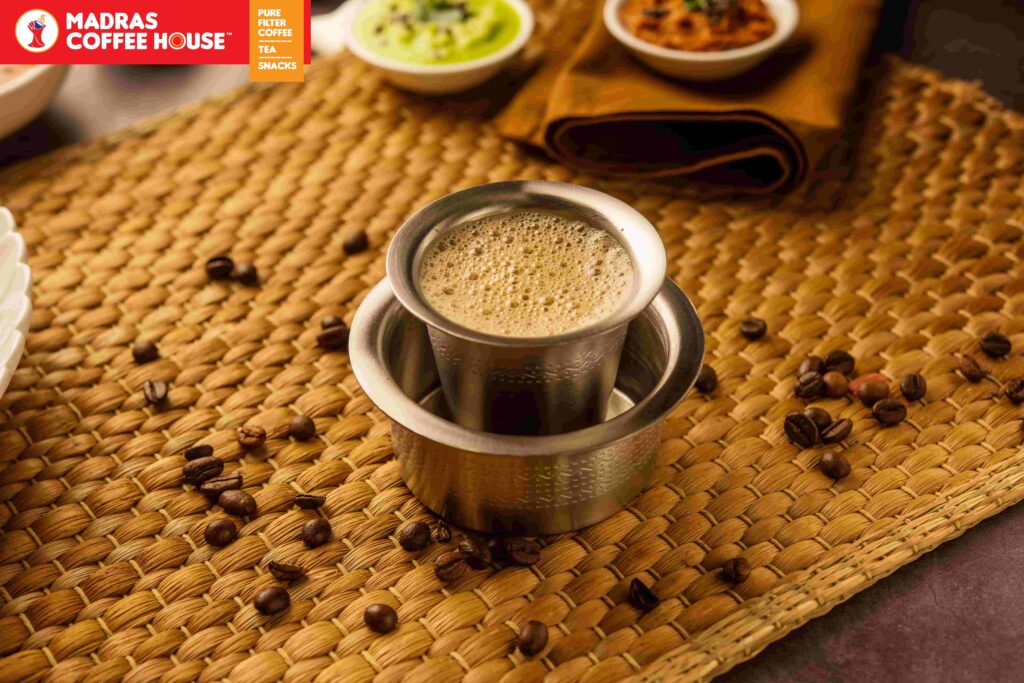
South India’s culinary landscape is renowned for its diversity, and one of the most cherished and iconic beverages that has emerged from this region is none other than the aromatic and soul-warming South Indian filter coffee.
South Indian filter coffee, often referred to as “kaapi,” has a history that dates back to the 17th century. It was introduced to the region by Baba Budan, a Sufi saint, who smuggled seven coffee beans from Yemen and cultivated them in the Chikmagalur district of Karnataka. These beans would eventually give birth to the first coffee plantations in India. Thus, coffee became an integral part of South Indian culture and cuisine.
What sets South Indian filter coffee apart from other coffee preparations is its unique brewing method. It’s made by combining freshly ground dark roasted coffee beans with chicory and then brewing it in a “dabara” (a metal container with a wide base and a cylindrical rim) and a “tumbler” (a metal cup).
The Role of Chicory
Chicory, a plant closely related to the dandelion, plays a significant role in South Indian filter coffee. It was introduced to the coffee blend during the British colonial era as a cost-saving measure.
The Cultural Significance
In South Indian households, filter coffee is an integral part of daily life, often served as a welcoming gesture to guests. The process of brewing and serving coffee is steeped in tradition and hospitality, emphasizing the importance of relationships and community.
Over the years, South Indian filter coffee has evolved to suit modern tastes. Coffee houses and cafes in South India and beyond offer various versions, including iced filter coffee, and even filter coffee-flavored desserts. Yet the classic filter coffee remains as the staple drink in every South Indian household.
To appreciate this fascinating journey visit Madras Coffee House, the best coffee shop in Chennai. Get the taste of this South Indian culture and hospitality at Madras Coffee House and pair it with our variety of snacks and embark on a taste journey.
